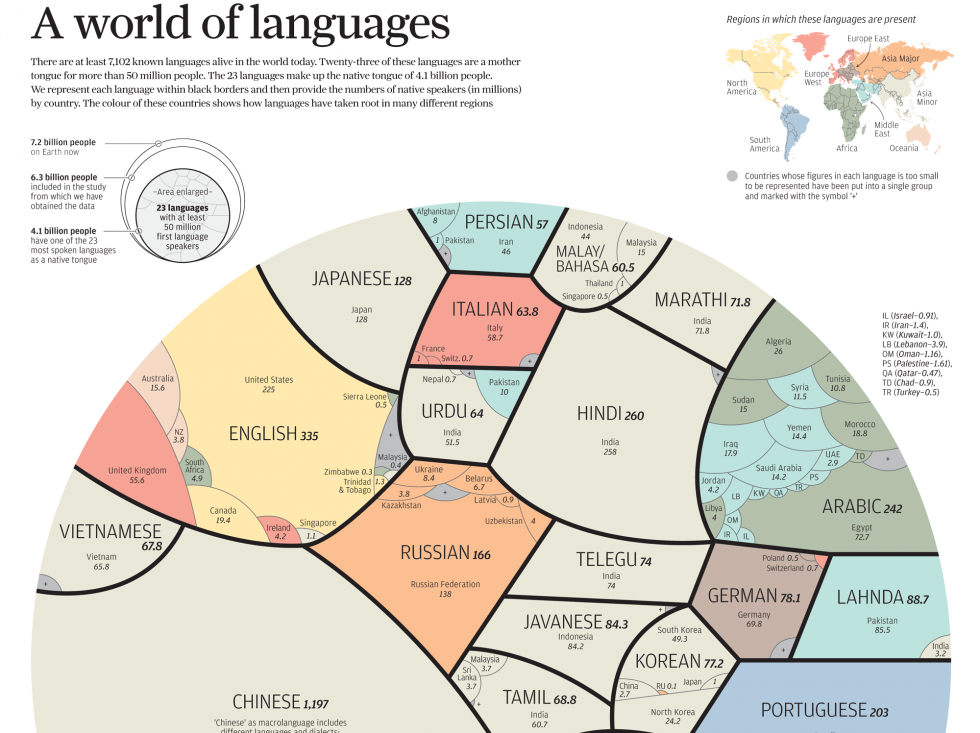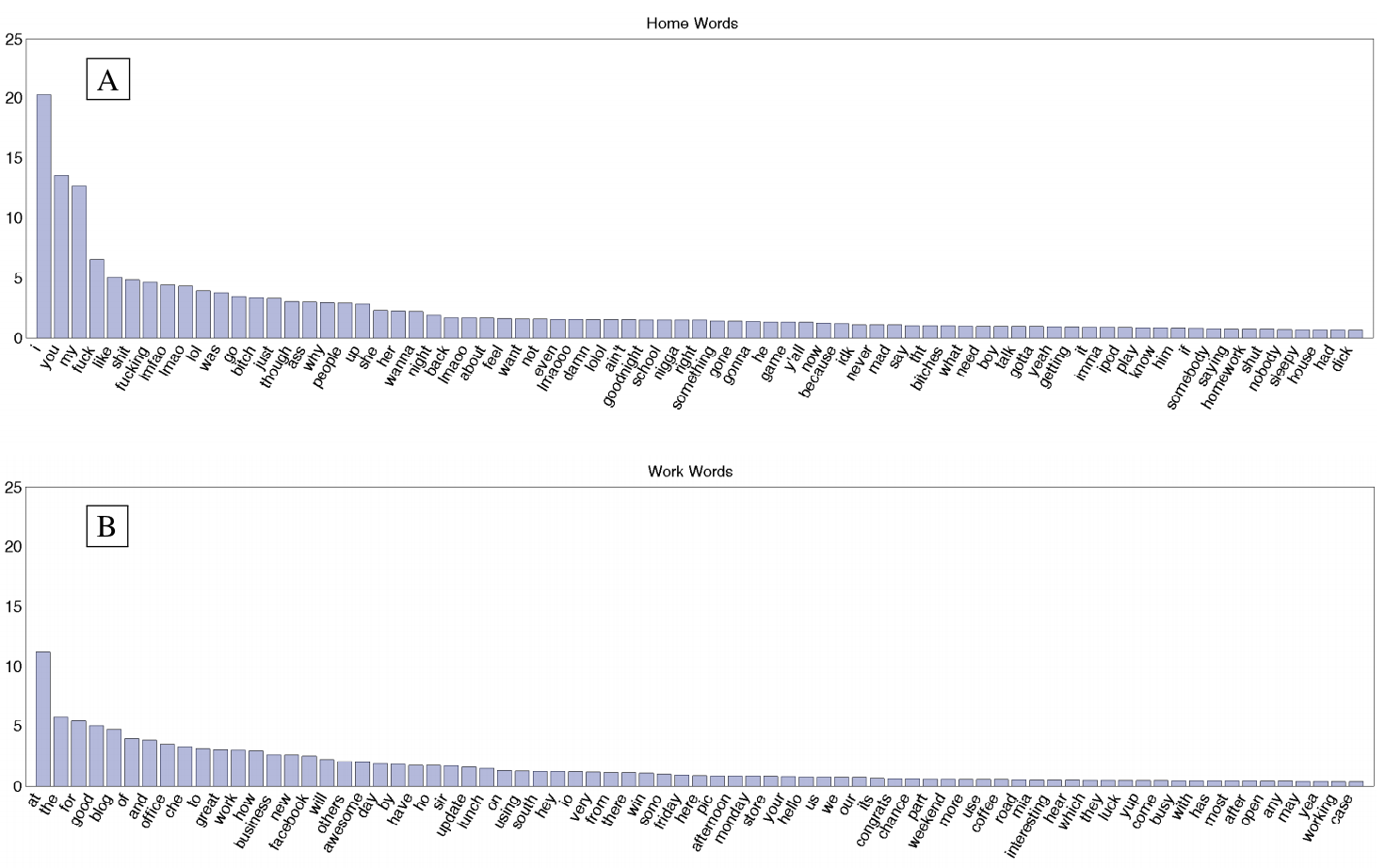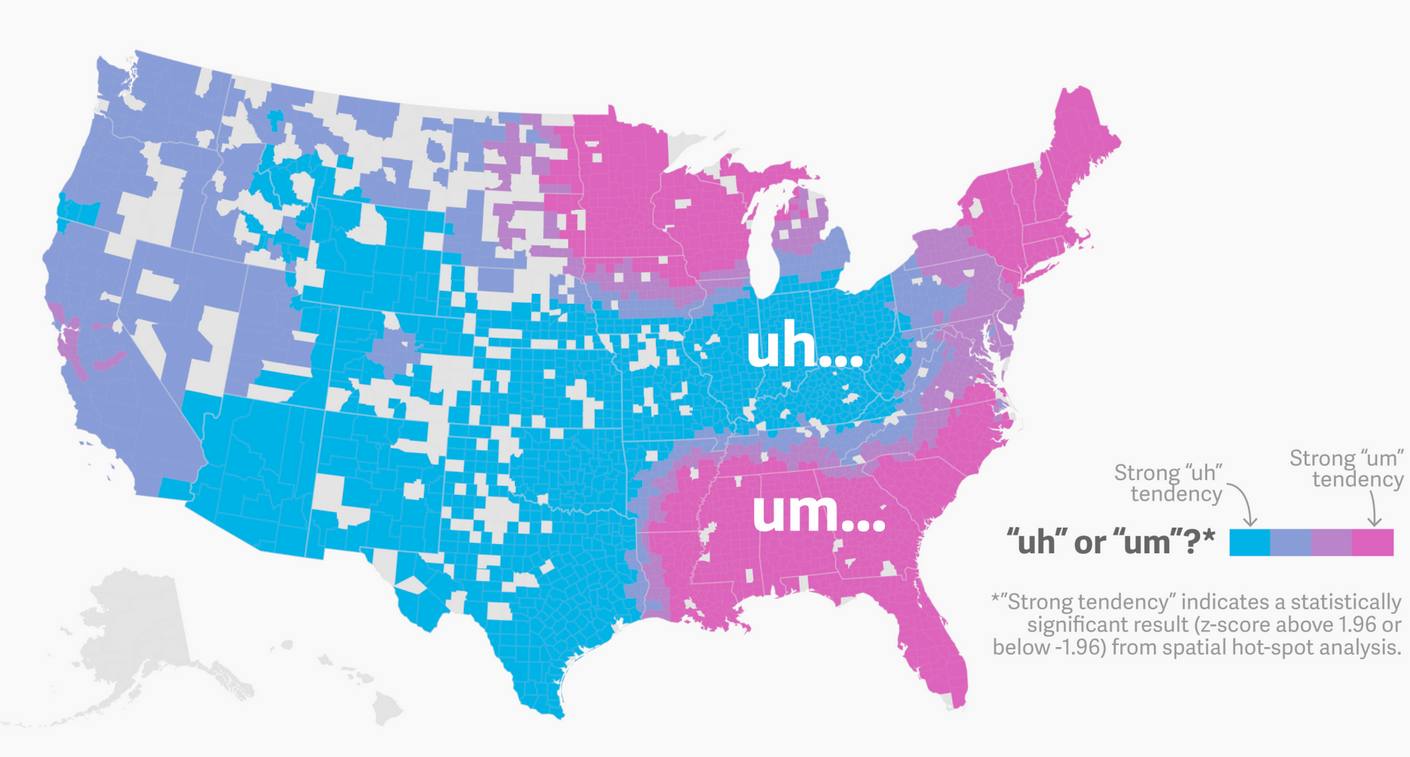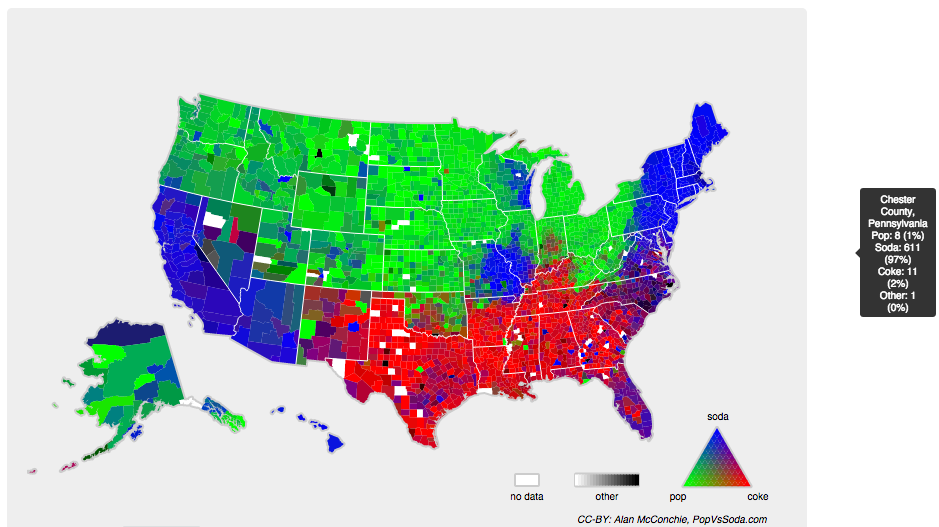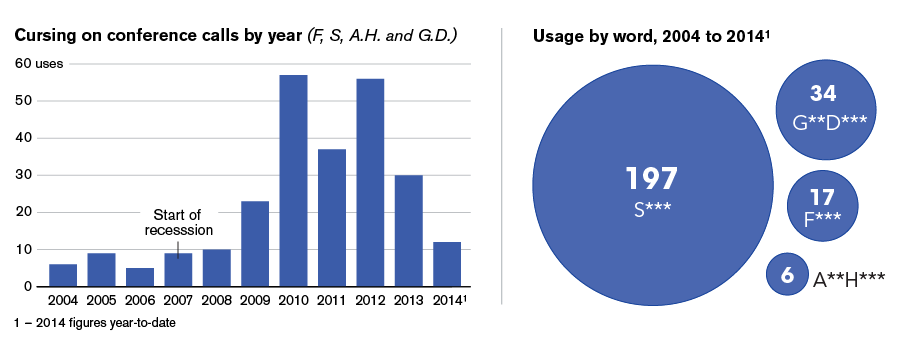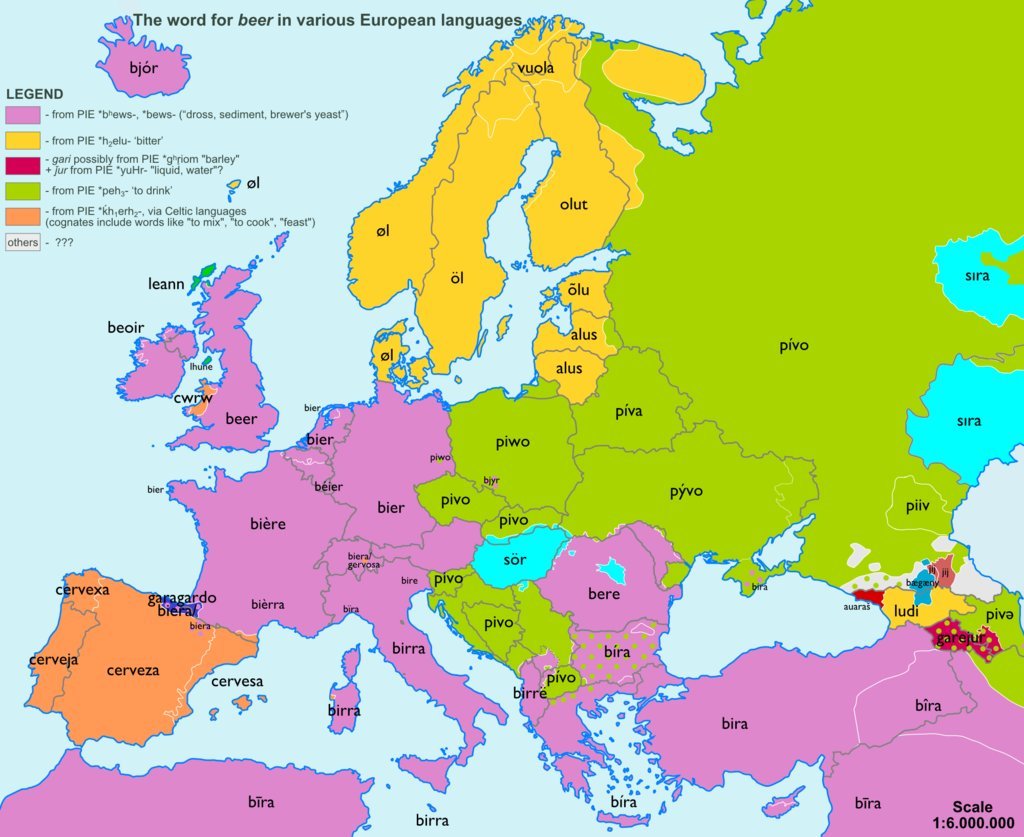The United Kingdom is known for having a large number of accents in a—compared to the United States—relatively small space. But then you add in Ireland and you have an entirely new level of linguistic diversity. Josh Katz, who several years ago made waves for his work on the differences in the States, completed some work for the New York Times on those differences between the UK and Ireland.
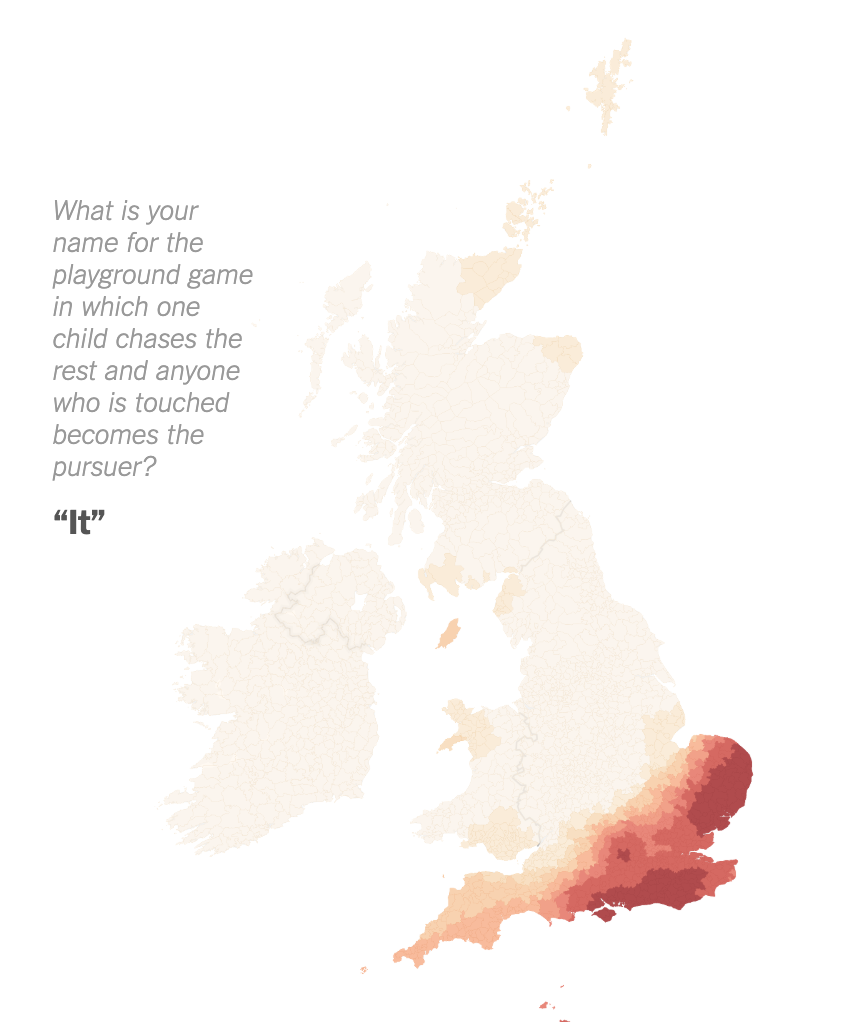
Why do I bring it up? Well, your author is going on holiday again, this time back to London. I will be maybe taking some day trips to places outside the capital and maybe I will confirm some of these findings. But if you want, you can take the quiz and see where you fall compared to Katz’s findings.
And it does pretty well. It identified me as being clearly not from the British Isles.
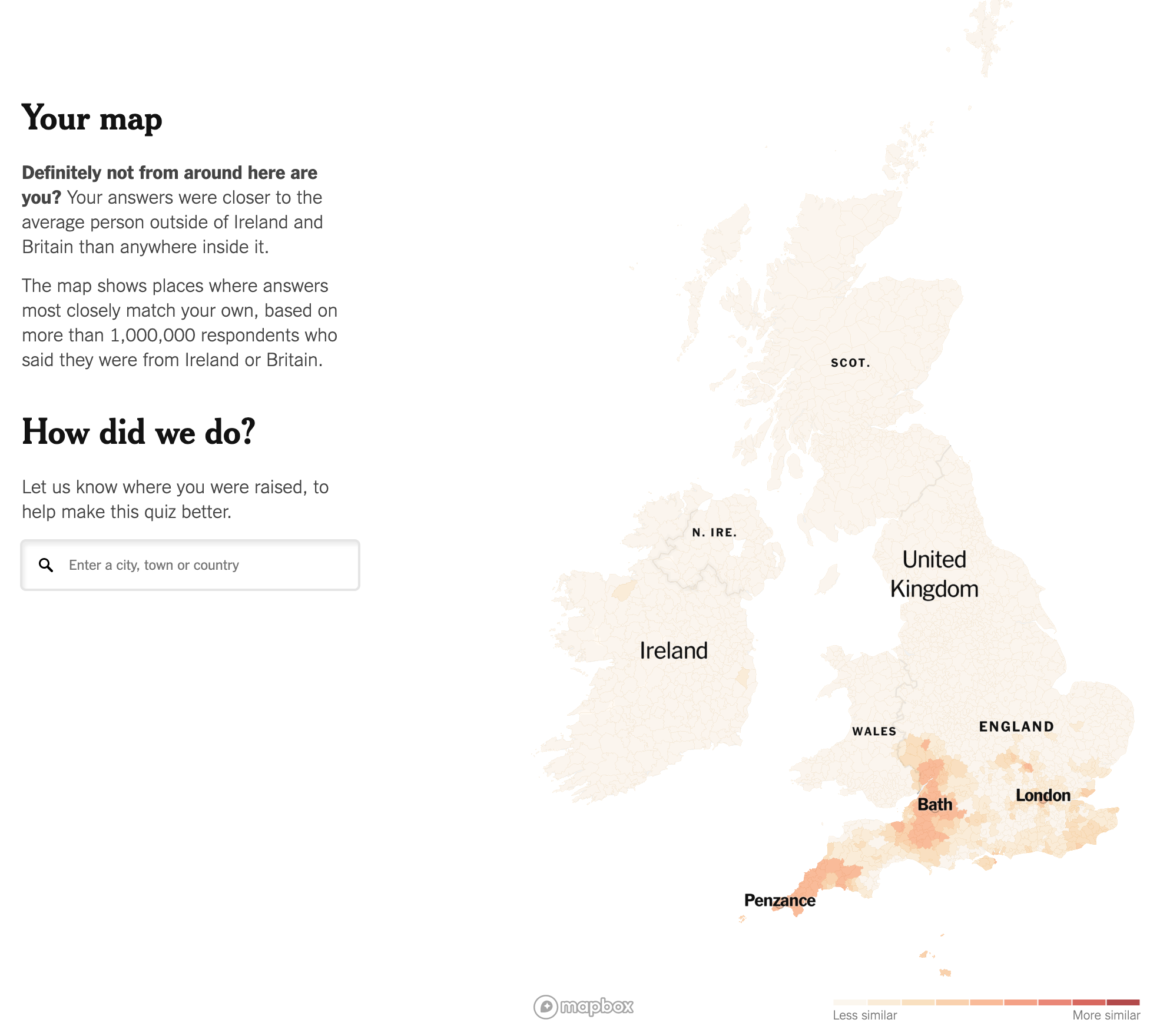
But depending upon how you answer a particular question, the article will show you how your answer compares. Let’s take my answer for scone. In that, I am more Irish.
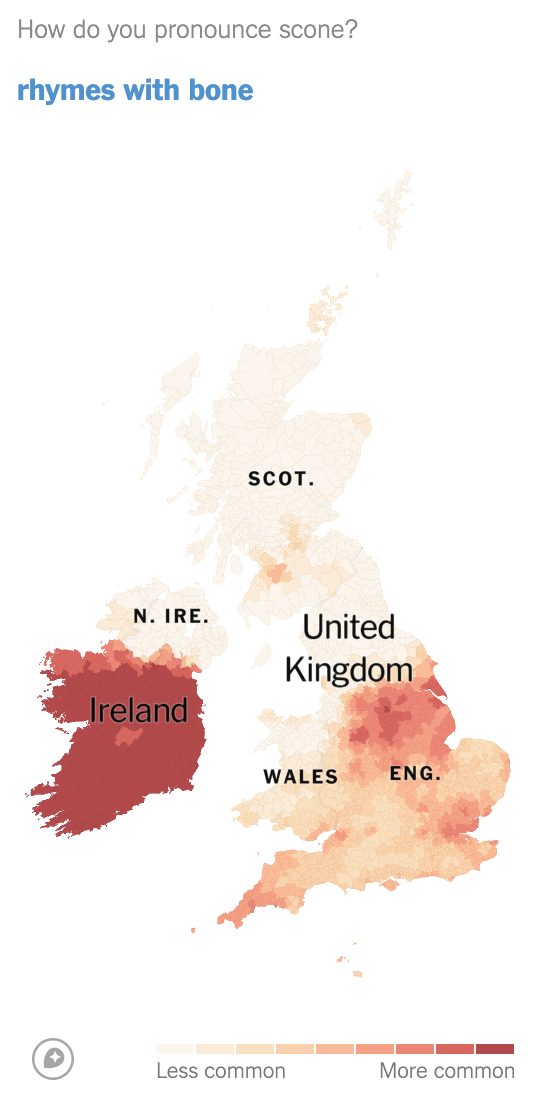
Credit for the piece goes to Josh Katz.

